The Sports Report Olympics Edition: Getting settled in for a unique Games
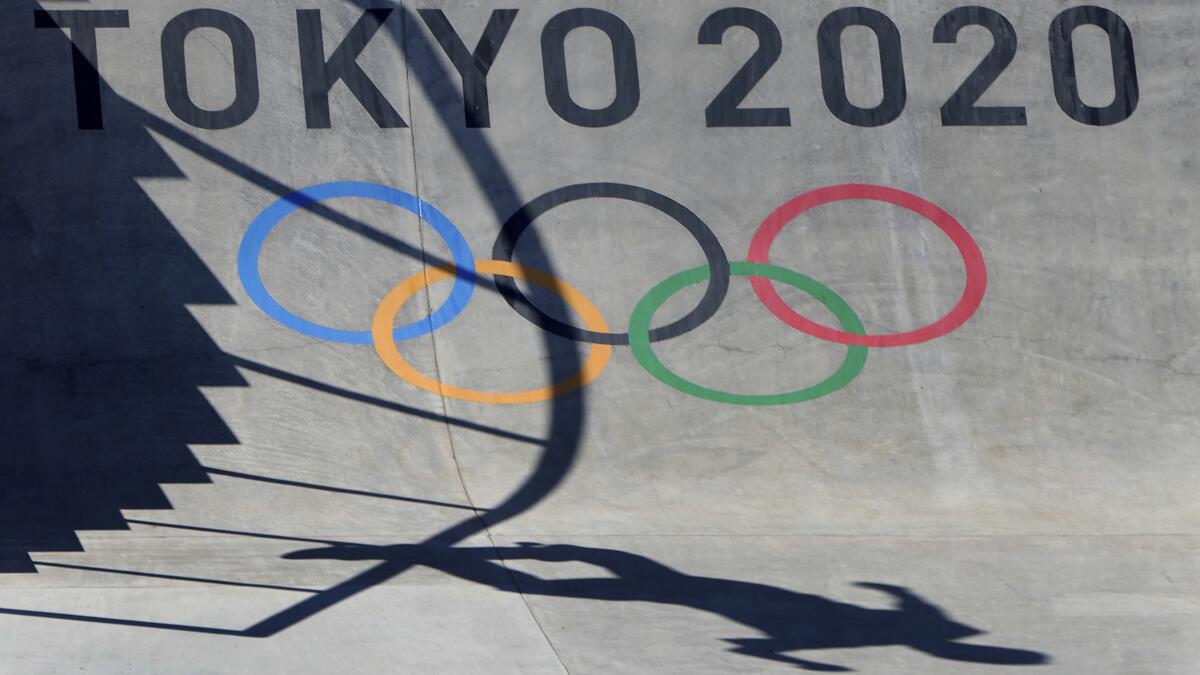
- Share via
TOKYO — It’s the Olympics newsletter, the place where we’ll sprint into your inbox like Ato Boldon, our favorite random track athlete.
While we’re all getting settled here in Tokyo, we wanted to introduce the main drivers of this ship the rest of the way (after David Wharton and Helene Elliott got us off on the right track).
Prepare for a slow derailment…
Go beyond the scoreboard
Get the latest on L.A.'s teams in the daily Sports Report newsletter.
You may occasionally receive promotional content from the Los Angeles Times.
I’m Dan Woike and I’ve already won gold in “rowing” — that’s the non-sanctioned sport I invented where you win if no one is anywhere close to your row on the plane. For these Games, we’ve all won that already.
Even though this is the first time I’ve covered the Olympics, it’s clear that it’s never quite been like this. To get to Japan, we all had to take multiple COVID tests. To get through the airport, we had to take another test (thankfully, the Japanese organizers put a picture of a lemon on the wall of our private spitting booths to help aide in saliva production).
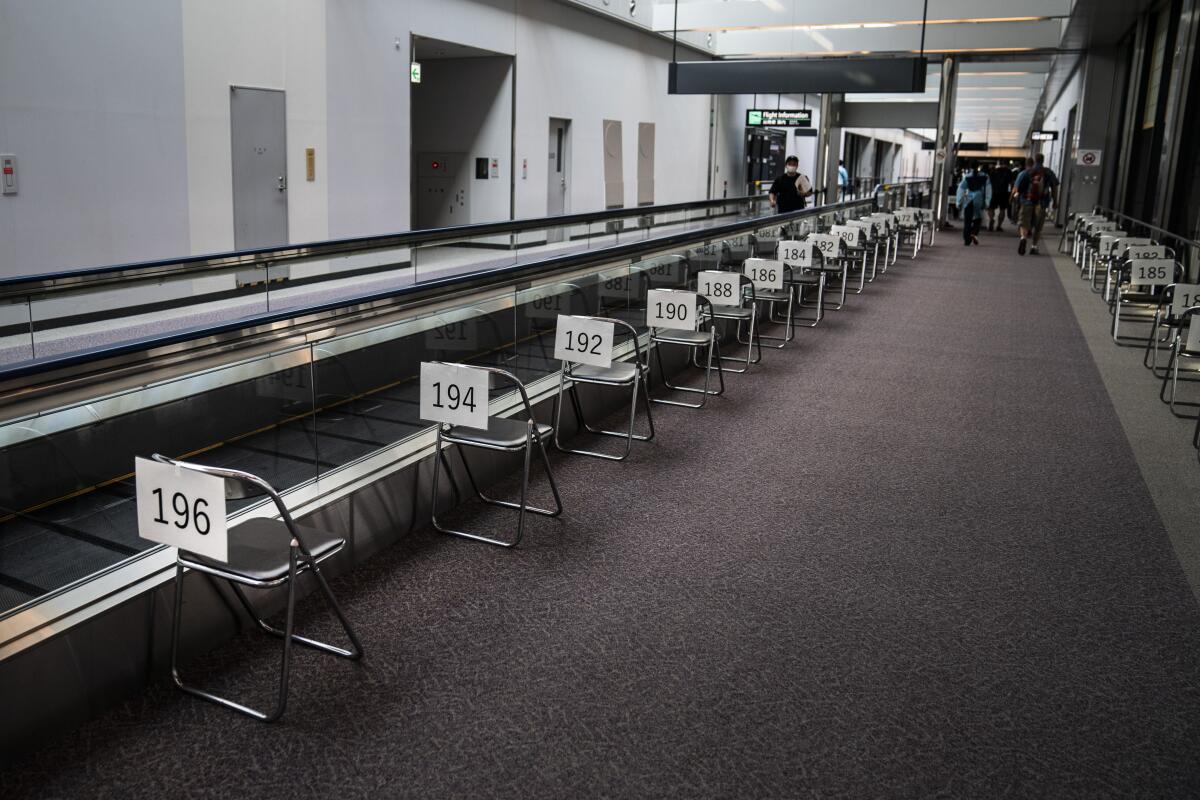
As we wait for the Games to begin, I’ve been constantly struck by how empty things have been — how the airport was a ghost town, how the rules and the protocols are going to define these next few weeks as much (and hopefully not more) than the competition.
There’s going to be serious stories from here — ones where athletes have everything they worked for undone by a positive COVID test instead of on the field. But this space will also celebrate some of the oddities we’re uncovering, like the absolute celebration of the local 7-11’s by the Times staff that beat my crew to Japan. (Seriously, I’ve never heard people celebrate a convenience store like this).
I know my first Olympics isn’t the typical Olympic experience. But I’m betting that will make it the most memorable.
———
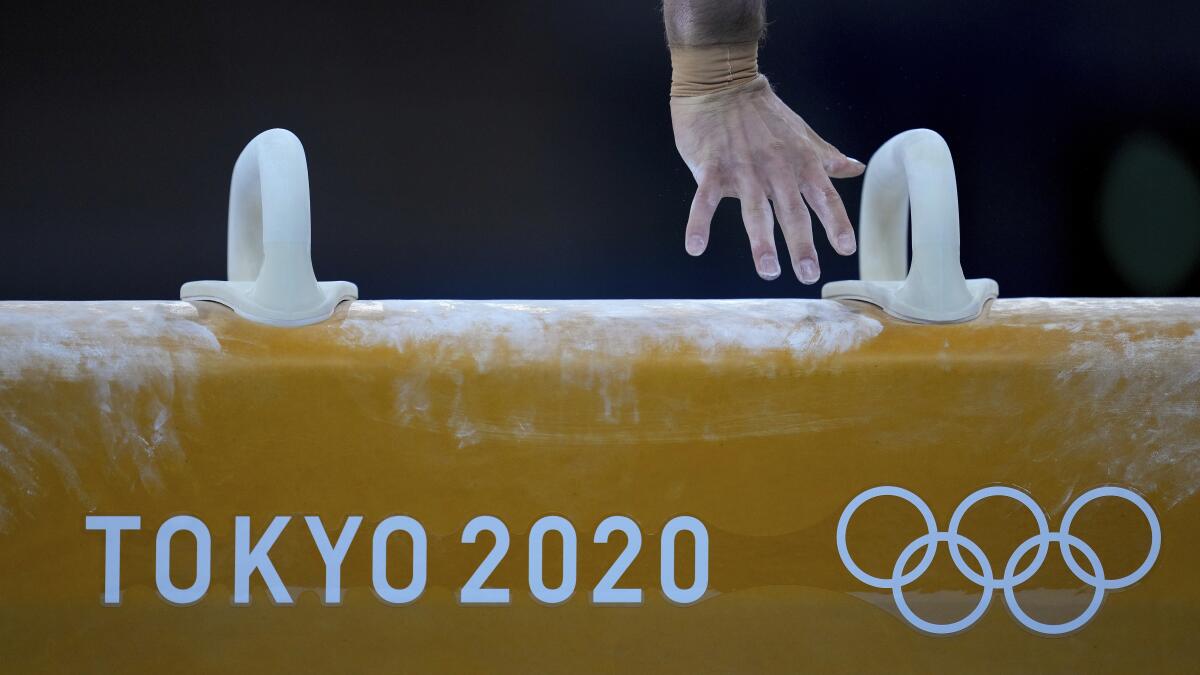
Hi, I’m Gary Klein, a Los Angeles Times sports veteran but an Olympic rookie. So, I’ll try to use this space to impart what the experience is like from that perspective.
I’ve covered Super Bowls, college football national championship games and the Kentucky Derby among other events. But my experienced Olympic colleagues have told me there is nothing quite like the logistical and stamina challenges posed by covering the near three-week Games.
And that was before a worldwide pandemic postponed these Tokyo Games for a year.
For all the emphasis on speed that will be a part of my coverage of track and field — “Athletics” in Olympic parlance — patience has been the watchword. Athletes were forced to wait a extra year to compete. Reporters have been tested by a marathon of paperwork, COVID testing and processing to gain clearance to be and remain here.
After an 11-hour flight from Los Angeles on Monday, my five-hour processing experience at Haneda airport included two hours waiting for a COVID saliva test to be reviewed. Trilingual columnist Dylan Hernandez deserves a medal for speaking by phone in Japanese with officials to help facilitate the situation — while he was going through his own nine-hour experience at another airport.
Now that’s the Olympic spirit.
As athletes from around the world filed through the airport in their Olympic warm up suits, the Games began to feel real. All of us in the Times contingent are looking forward to telling their stories.
———
Becoming a record-holder isn’t always fun. It can involve hours spent waiting for test results, wondering what is wrong with your documents and pondering when you’ll get some sleep that doesn’t require awkwardly slumping in an airline-lounge chair.
By the time I stepped into the lobby of the Nishitetsu Inn Shinjuku, it was 1:22 a.m. in Tokyo. That was 9 hours 21 minutes after my United Airlines flight landed at Narita International Airport, the longest time between touch down and hotel arrival among our 16-person Olympics contingent.
This is not intended to sound like a complaint — I really am happy to be here, even if I am more than a bit bleary eyed and jetlagged but I’ll get over it.
My name is Ben Bolch, and I’ll be one of the shepherds of this Olympics newsletter over the next few weeks. This is my first Olympics, a longtime dream for someone whose early sports heroes included Carl Lewis and Mary Lou Retton even though I had never followed track and field or gymnastics prior to the 1984 Olympics.
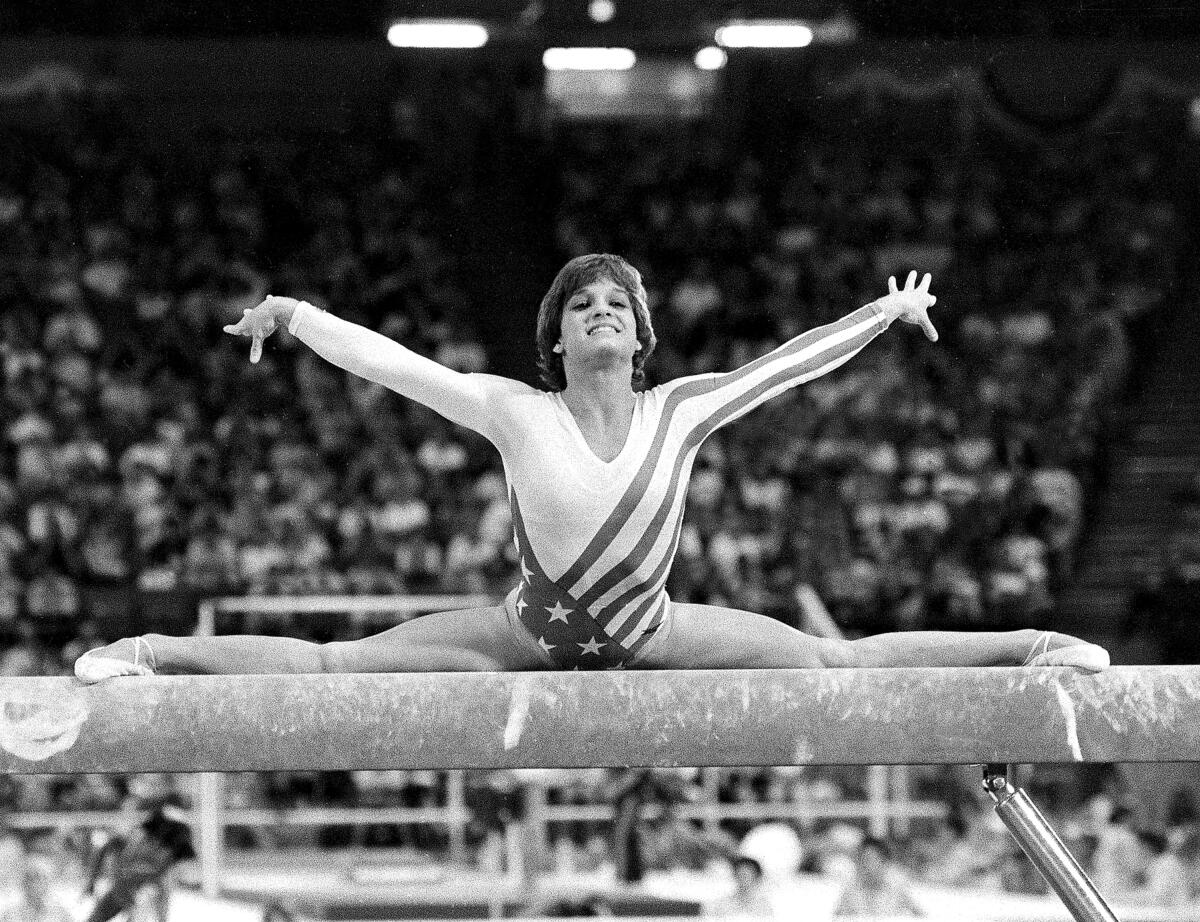
But there was just something about Lewis winning one gold medal after another and Retton sticking the landing on that vault, earning a perfect 10 on a gimpy knee. I was hooked.
I am hoping to be inspired anew over the coming weeks. I recently interviewed members of the U.S. men’s water polo team and chatted informally with captain Jesse Smith. A five-time Olympian from Pepperdine, Smith saw me standing next to his gear at the Sage Hill High pool in Newport Beach and struck up a conversation about random topics such as seafood hotspots in Malibu. He also gave me a copy of his colorfully illustrated children’s book, “Wally the Water Polo Walrus,” for my 8-year-old son.
Getting here wasn’t nearly as fun, even if Smith and his teammates were coincidentally aboard my flight from San Francisco. The flight was uneventful but almost everything that followed was an ordeal. It all started with a lengthy wait in an airport hallway followed by a brief chat with an official who determined that I didn’t have the necessary documents to proceed.
Once that issue was finally solved, an official writing “NO OCHA” in big red letters on a form and underlining it twice, I barely mustered enough saliva for the COVID-19 test that was anything but rapid. A 3½-hour wait inside the ANA lounge ensued before a lady walked over and happily announced to a group of stragglers awaiting their results, “All negative.”
It was essentially a breeze from there. I got my credential activated, cleared customs and picked up my luggage at baggage claim in less than a half hour. Then it was clambering aboard a bus for an hourlong ride to a depot, where I stood in another line and caught a taxi for the short ride to my hotel.
It was a long trip followed by a long wait and only a few hours’ sleep. Given how long the whole thing has been in the making, I couldn’t be more thrilled.
Enjoying this newsletter? Consider subscribing to the Los Angeles Times
Your support helps us deliver the news that matters most. Become a subscriber.
Women’s soccer
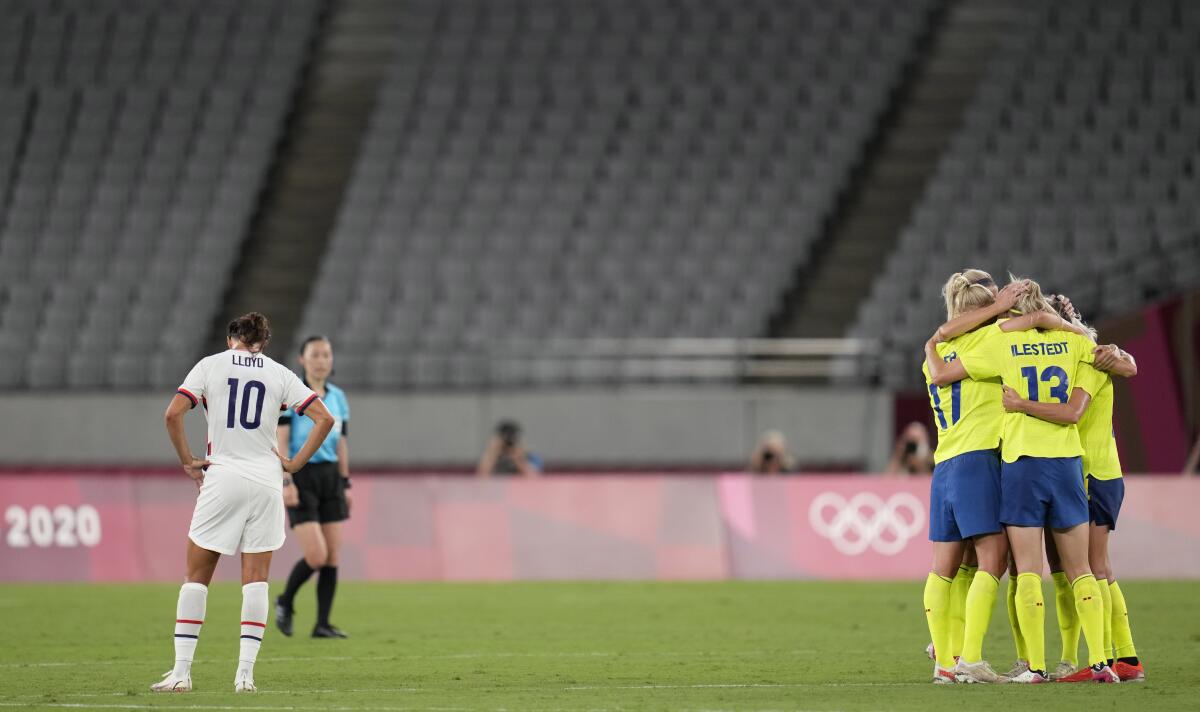
Kevin Baxter on the U.S. Women’s National Team’s loss: Two goals from Stina Blackstenius, one in each half, lifted Sweden to a 3-0 win over the reigning world champion United States on the first day of group play in women’s soccer at the Tokyo Olympics.
The loss snapped a 44-game unbeaten streak for the U.S. and ended a more modest one for new coach Vlatko Andonovski, who went 22-0-1 in his first 23 games, the lone draw coming against Sweden.
U.S. goalkeeper Alyssa Naeher made four sprawling saves in the opening 24 minutes before a well-marked Blackstenius finally beat her, stepping in front of defender Abby Dahlkemper to nod home a perfect right-footed Sofia Jakobsson cross from the edge of the penalty area.
It was the first goal the U.S. had allowed in seven games and 592 minutes — or since the last time it played Sweden — and was just the second score the Americans have conceded in 16 months.
Opening ceremony flag bearers
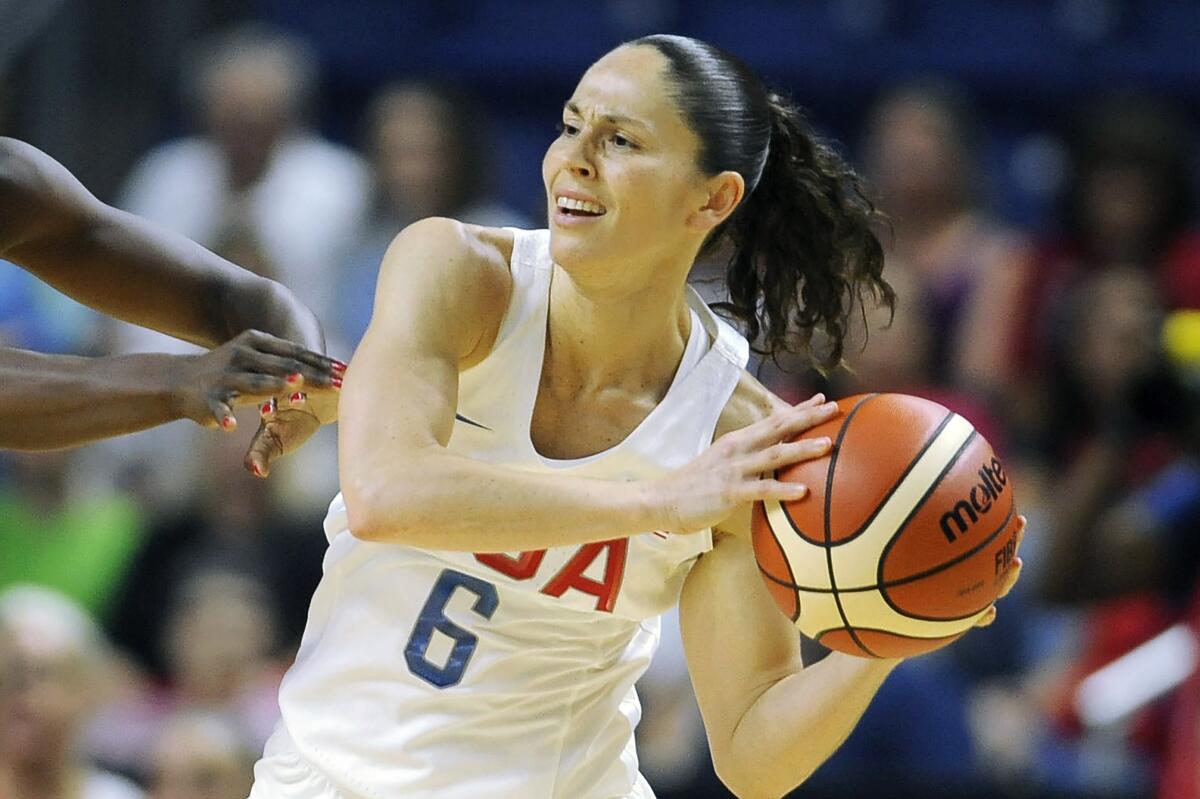
Austin Knoblauch on the Olympics opening ceremony: WNBA star Sue Bird and two-sport Olympic athlete Eddy Alvarez have been chosen as the United States flag bearers for the opening ceremony of the Tokyo Olympic Games.
Bird and Alvarez were voted to be flag bearers by their Olympic teammates. They will carry the American flag in front of the U.S. delegation, which is set to feature more than 230 athletes walking into Olympic Stadium in Tokyo on Friday.
Bird is a four-time Olympic champion who made her Olympic debut for the U.S. women’s basketball team at the 2004 Athens Games. Alvarez, a member of the U.S. baseball team, won a silver medal as part of the U.S. four-man short track speedskating team at the 2014 Sochi Winter Olympics.
Men’s soccer
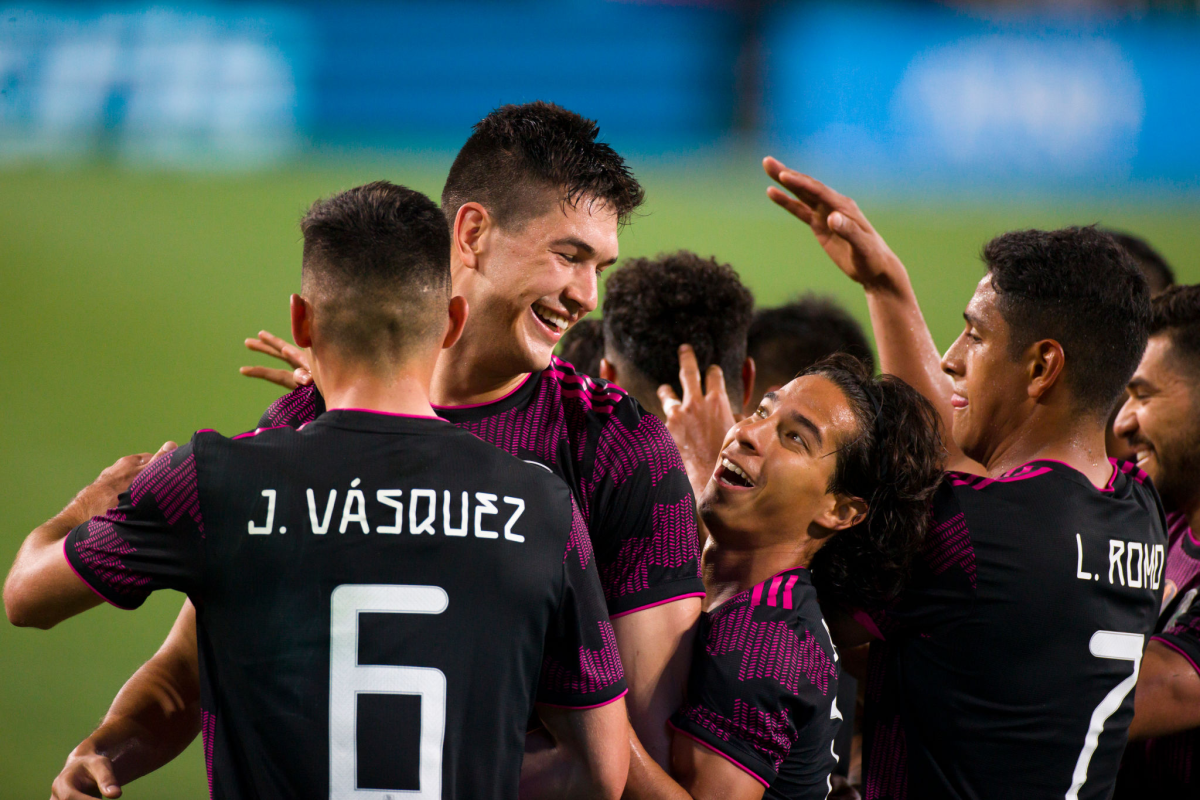
Kevin Baxter on Mexico’s quest to win gold: When Mexico stumbled home from the 2010 World Cup, its national team program wasn’t exactly in crisis. But it was close.
El Tri had fielded an aging team in South Africa, one led by a 37-year-old goalkeeper, two 31-year-old captains and a 37-year-old striker. It made the London Olympics two years later an audition of sorts, with Mexico needing to get younger fast with another World Cup on the horizon.
And it worked. Mexico’s U-23 team beat Brazil and Neymar in the gold-medal match, and 10 of the 18 players on that roster made the next World Cup team.
Mexico opens Olympic play on Thursday facing the same kind of pressure. The team it fielded at the 2018 World Cup in Russia was the second oldest in the tournament and it has just 16 months to fix that before the next World Cup begins in Qatar.
Medal count champions
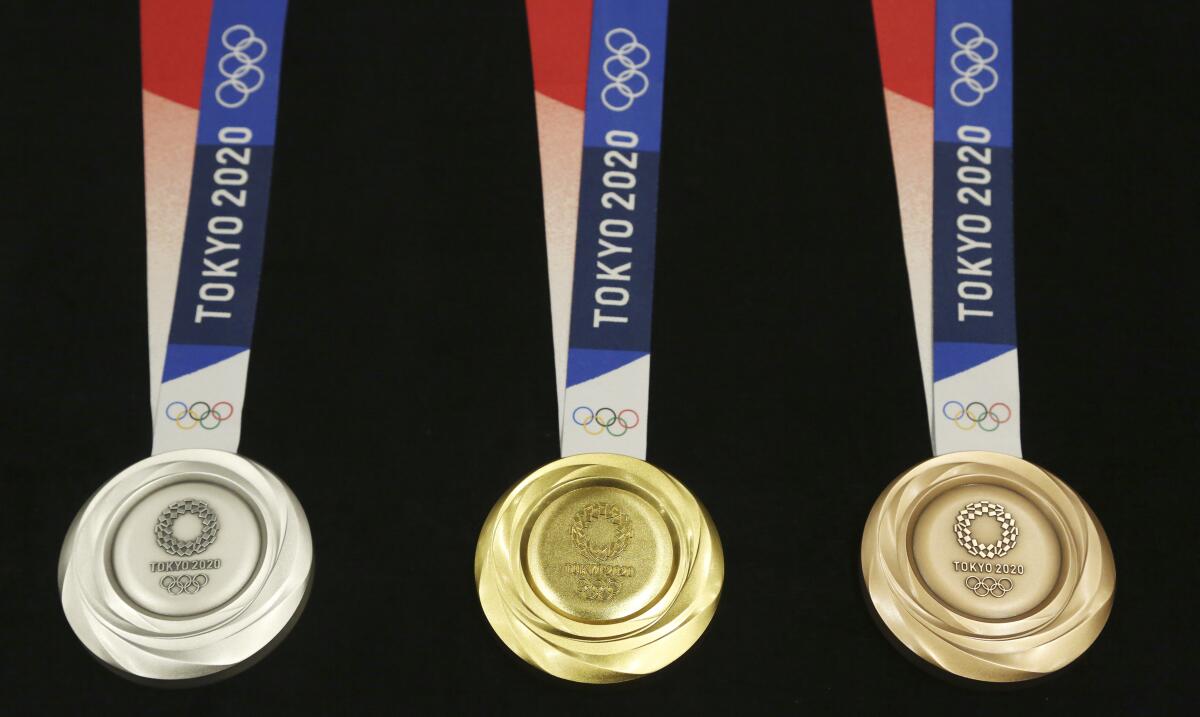
David Wharton on how the U.S. is poised to win another medal count: Reminders that these Summer Games aren’t normal come in the form of the plastic dividers that separate each athlete at tables in the Olympic village dining hall. The narrow vials that participants, officials, media and other credential holders must regularly fill with saliva to test for the coronavirus. The ever-present temperature checks. The stands that won’t have spectators in the vast majority of 42 competition venues.
Though the still-surging COVID-19 pandemic has transformed the 17-day event into as much of a public health challenge as an athletic extravaganza, one thing should remain the same amid the unpredictability as the Games open Friday.
The U.S. is projected to win more medals than any other country for the seventh consecutive Olympics.
G’Day for Brisbane
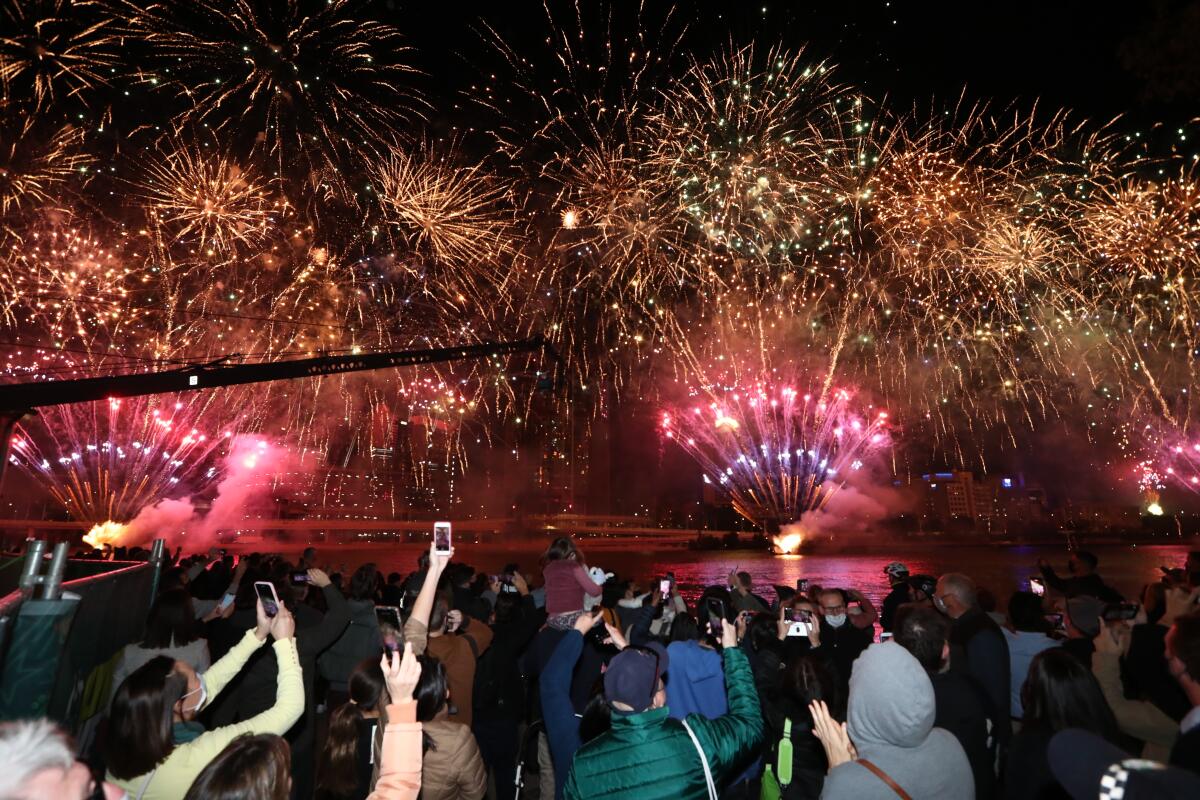
Jorge Castillo on the 2032 Olympic Games: The Tokyo Olympics began Wednesday under a cloud of uncertainty, but the future of the competition took a predictable turn when Brisbane, Australia, was officially picked to host the 2032 Olympics.
The expected announcement culminated an overhauled selection format designed to avoid bidding wars, limit the risk of vote buying and give the International Olympic Committee more control of the process.
Brisbane was given exclusive negotiating rights in February when it was named the IOC’s “preferred partner.” The IOC’s decision all but assured that Brisbane would be awarded the Games, pushing aside bids from cities in Qatar, Hungary and Germany.
IOC President Thomas Bach said Brisbane’s plan aligned with the organization’s goal to encourage Olympic projects to use a high percentage of existing and temporary venues over building costly permanent venues that could be left unused following the event’s conclusion.
Olympics TV schedule
Here’s a look at the live TV coverage schedule for Wednesday, Thursday and Friday (U.S. events bolded; all times PDT):
WEDNESDAY
Softball — U.S. vs. Canada, 5 p.m., NBCSN
Softball — Japan vs. Mexico, 8 p.m., NBCSN
Softball — Italy vs. Australia, 11 p.m., NBCSN
THURSDAY
Men’s Soccer — Egypt vs. Spain, 12:30 a.m., Olympic Channel
Men’s Soccer — Mexico vs. France, 1 a.m., USA
Men’s Soccer — New Zealand vs. South Korea, 1 a.m., NBCSN
Men’s Soccer — Ivory Coast vs. Saudi Arabia, 2:30 a.m., Olympic Channel
Men’s Soccer — Argentina vs. Australia, 3:30 a.m., Olympic Channel
Men’s Soccer — Japan vs. South Africa, 4 a.m., NBCSN
Men’s Soccer — Brazil vs. Germany, 4:30 a.m., USA
Men’s Soccer — Honduras vs. Romania, 5:30 a.m., Olympic Channel
Rowing — Qualifying heats, 4:30 p.m., NBCSN
FRIDAY
Opening Ceremony: 4 a.m., NBC
Rowing — Qualifying heats and repechages, 4:30 p.m., USA
Cycling — Men’s road race, 4:30 p.m., USA
Tennis — Men’s and Women’s first round singles, 7 p.m., Olympic Channel
Women’s Water Polo — U.S. vs. Japan, 9 p.m., NBCSN
Tuesday/Wednesday Olympic results
SOFTBALL
Japan 8, Australia 1
U.S. 2, Italy 0
Canada 4, Mexico 0
WOMEN’S SOCCER
Britain 2, Chile 0
Brazil 5, China 0
Sweden 3, U.S. 0
Japan 1, Canada 1
Netherlands 10, Zambia 3
Australia 2, New Zealand 1
Olympics live blog

Be sure to follow The Times’ Olympics live blog for the latest results, news and analysis from our team of reporters from Tokyo. For all of our Olympics coverage, go to latimes.com/olympics.
And finally
Cat Osterman put on a dominant display in leading the U.S. softball team to victory over Italy.
Until next time...
That concludes today’s newsletter. If you have any feedback, ideas for improvement or things you’d like to see, email us at sports@latimes.com. To get this newsletter in your inbox, click here.
Go beyond the scoreboard
Get the latest on L.A.'s teams in the daily Sports Report newsletter.
You may occasionally receive promotional content from the Los Angeles Times.






